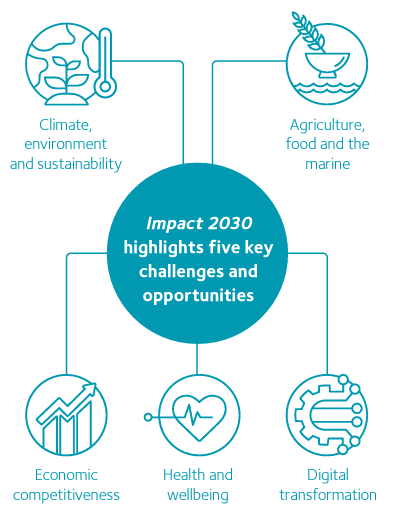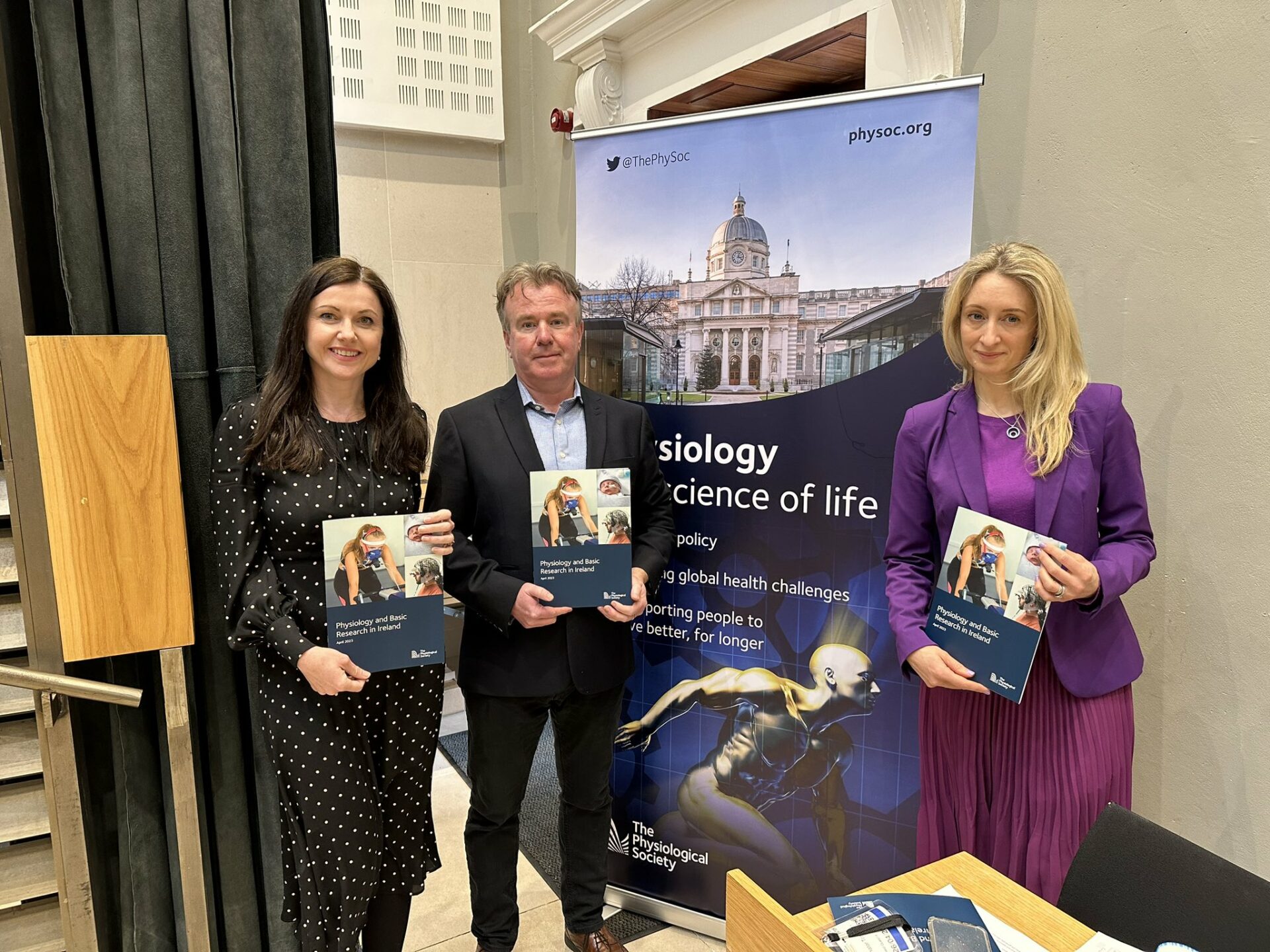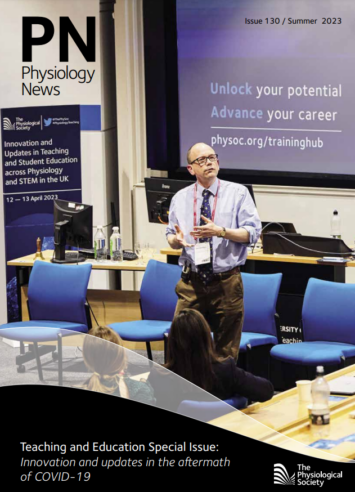
Physiology News Magazine
Policy Focus: The future funding for basic research in Ireland
News and Views
Policy Focus: The future funding for basic research in Ireland
News and Views
https://doi.org/10.36866/pn.130.8
Shania Pande
Policy Officer, The Physiological Society
Ireland is world leading in science, research and development, including the physiological sciences. Physiology expertise in Ireland ranges from respiratory physiology, oncology and neuroscience, to sport and exercise science.
Members of The Physiological Society carrying out physiology research and teaching in Ireland have been at our core since our foundation in 1876. Gerald Francis Yeo from Trinity College Dublin was one of 19 physiologists who first gathered to form The Society. He also served as the Secretary of The Society until 1889 and campaigned for the value of in vivo research in response to Victorian anti-vivisection campaigns.
Despite the tremendous growth of the Irish economy over the past few years, the Government’s overall investment in R&D has not been made at the same rate. Ireland has achieved limited progress towards the Innovation 2020 report’s research intensity rate target of 2.5% of GNP, which rose from 1.55% in 2015 to an estimated 1.63% in 2020.

Comparative analysis between Irish investment in R&D and that of other similar countries is further complicated by the Irish Government’s use of an economic metric other than GDP called ‘modified Gross National Income’ (GNI). This was developed in the aftermath of the financial crisis in 2008 to take into consideration the disproportionate impact of multinational corporations based in Ireland on Irish macroeconomic data.
In 2022, the Irish government announced Impact 2030: Ireland’s Research and Innovation Strategy, an R&D innovation strategy designed to maximise the impact of research and innovation on many national priorities. It will progress objectives shared across the Irish research and innovation system, such as maximising its impact on public policymaking and implementation, and nurturing and attracting talent.
As a part of this Strategy, the government has proposed the merger of Science Foundation Ireland and the Irish Research Council through a Research Bill designed to improve and enhance interdisciplinary research in key challenge areas such as health and wellbeing, climate change and sustainability.
This merger has raised concerns about the future funding of basic research in Ireland. Physiology is an interdisciplinary science but also one that has suffered from the lack of prioritisation for basic research in Ireland. To this end, The Society held an event in the Houses of the Oireachtas, to discuss how the prioritisation of basic research can help to meet the key challenges presented in Impact 2030.
The event, kindly hosted by Senator Tom Clonan, brought together Irish researchers, physiologists, and members of both the Dáil and Seanad to discuss the value and contribution of basic research to R&D in Ireland following the publication of the Heads of Bill for the upcoming Research Bill and the Impact 2030 framework.

We heard speeches from Senator Clonan, Dr Olga Piskareva from the Royal Irish Academy, Dr Ruth Freeman from Science Foundation Ireland and Professor Áine Kelly from Trinity College Dublin representing The Society. In combination, their speeches demonstrate the key role science has to play in responding to the major societal challenges of our time and the importance of basic, curiosity-driven research in driving translational research.
The Society produced a short report Physiology and Basic Research in Ireland for this event, highlighting physiological expertise in Ireland and its role in supporting the Irish R&D and innovation ecosystem with some examples from higher education institutions across the country. One such example was from the Dundalk Institute of Technology wherein researchers are identifying novel therapeutic targets for the treatment of chronic obstructive pulmonary disease (COPD).
In the coming months, The Society will be working closely with Irish members and other learned societies to take forward the recommendations from the meeting and ensure that future funding schemes represent the interest of physiologists and researchers within Ireland to put physiology at the heart of Impact 2030 and the National Grand Challenges Programme in Ireland.
The Physiological Society and its members continue to demonstrate through reports such as From ‘Black Box’ to Trusted Healthcare Tools that physiological research is key to creating a healthier, more sustainable, equitable and economically prosperous society. Our report Physiology and Basic Research in Ireland and further information about our policy work can be found at: physoc.org/policy
